3rd Meeting of the Open-ended Working Group (OEWG3) of the International Conference on Chemicals Management (ICCM)
1-4 April 2019 | Montevideo, Uruguay
Summary Highlights: 1-4 April 2019
Highlights for Thursday, 4 April 2019
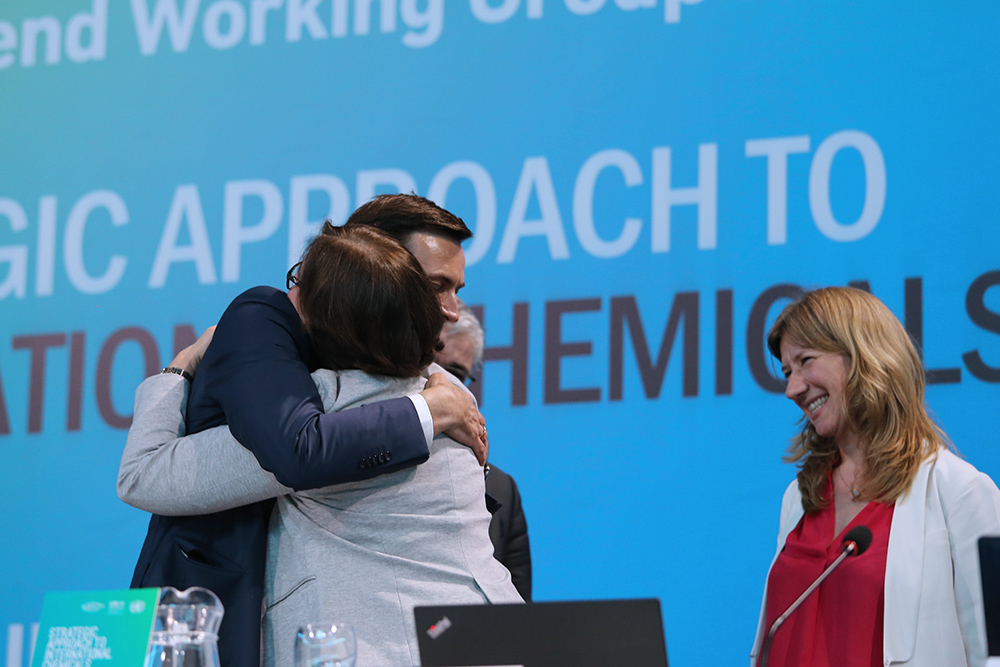
The Third Meeting of the Open-ended Working Group (OEWG3) of the International Conference on Chemicals Management (ICCM) entered its final day of work at the Antel Arena in Montevideo, Uruguay, on Thursday, 4 April 2019. Plenary met briefly in the morning to hear reports back from the contact group considering recommendations to the fifth ICCM (ICCM5) scheduled for 2020 and the "Friends of the President" Group informally discussing the need for an enabling framework beyond 2020 and identifying gaps not filled by SAICM. It also considered a report on preparations for ICCM5, with Germany formally announcing it will host ICCM5 in Bonn 5-9 October 2020.
Most of the day was devoted to two meetings of the contact group and a brief meeting of the Friends Group. The former focused on an initial discussion of competing proposals on financial aspects and preparation of a report for consideration by the third intersessional process (IP) meeting in October 2019. The latter reviewed a draft co-facilitators' summary of their discussions to present to plenary.
When plenary reconvened in late afternoon, it heard reports back from the two groups, and decided to annex the report of contact group to the OEWG3 meeting report and to outline the Friend's oral summary in the meeting report. The delegates then reviewed and approved the meeting report and provided closing statements.
ICCM5 President Sahler thanked all participants for their hard work and closed the meeting at 6:29 pm.
Highlights of the day included:
- Discussions of competing ideas on financing the sound management of chemicals and waste, including mainstreaming the issue in national budgets and development plans, possible cost recovery options involving the private sector, and a possible new international fund on chemicals and waste;
- An announcement by the UK that it will host an expert meeting in August or September 2019 to prepare indicators on the sound management of chemicals and waste for consideration at ICCM5;
- Romania offered to host the fourth IP meeting in early 2020.
IISD Reporting Services, through its Earth Negotiations Bulletin (ENB) meeting coverage, has provided daily web coverage and a summary and analysis report from OEWG3, which is available in HTML and PDF.
Photos by IISD/ENB | Ángeles Estrada Vigil
For photo reprint permissions, please follow instructions at our Attribution Regulations for Meeting Photo Usage Page
+ Visit the web coverage for Thursday, 4 April 2019
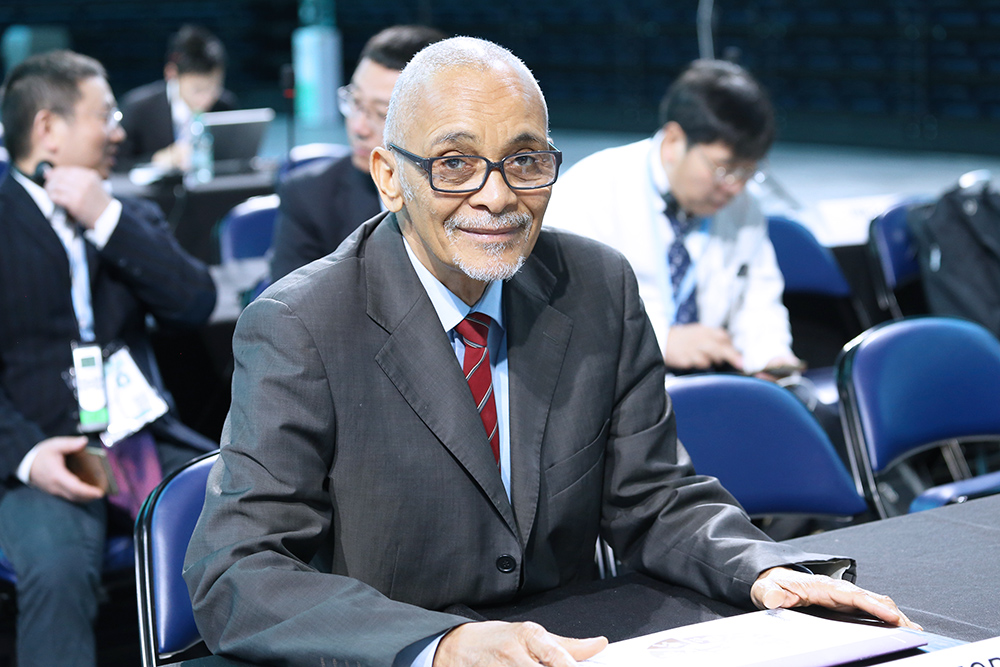
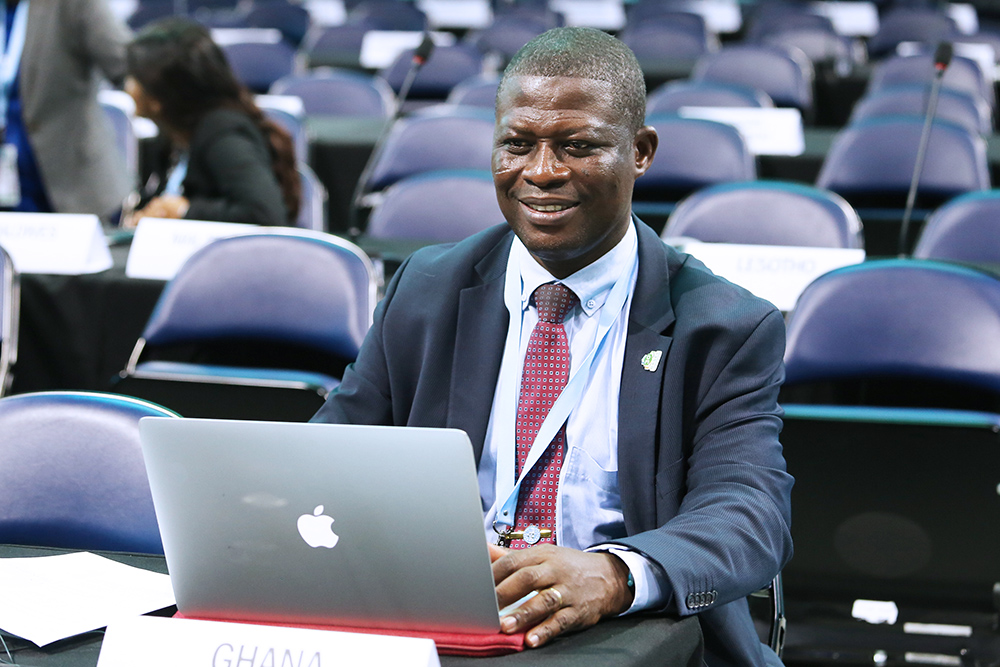
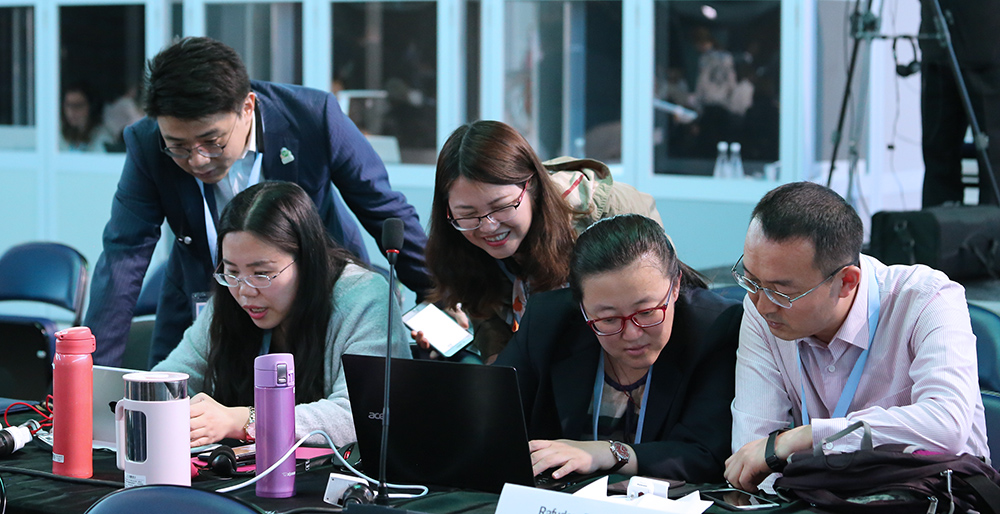
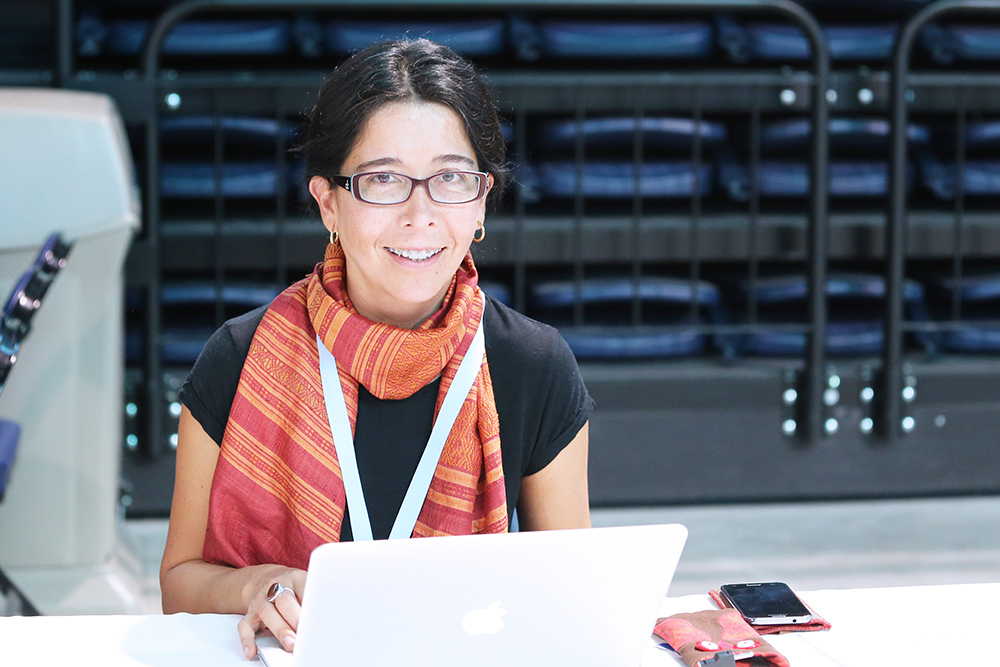
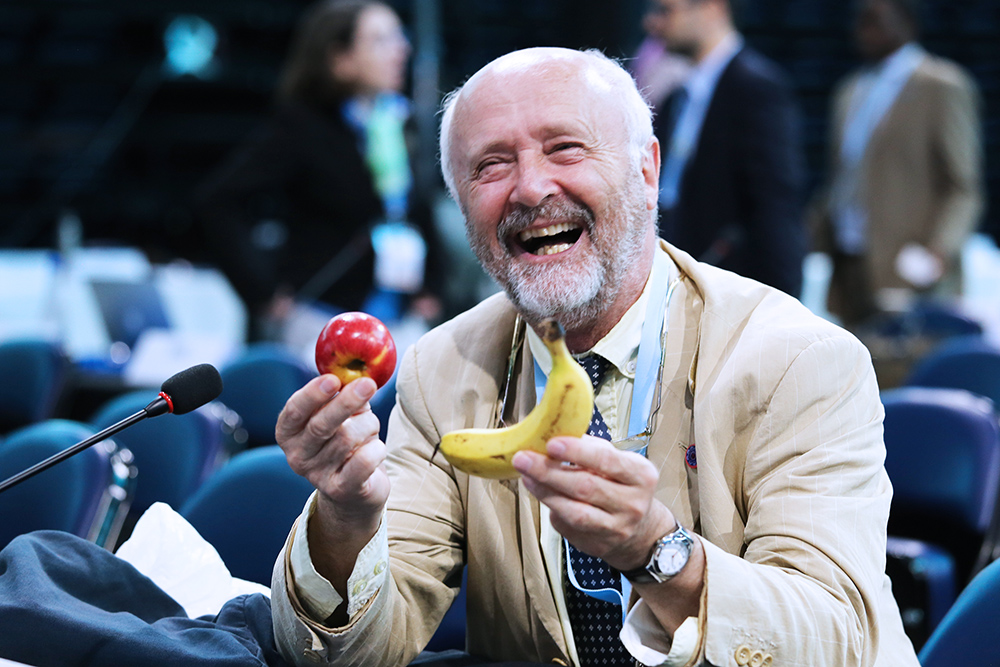
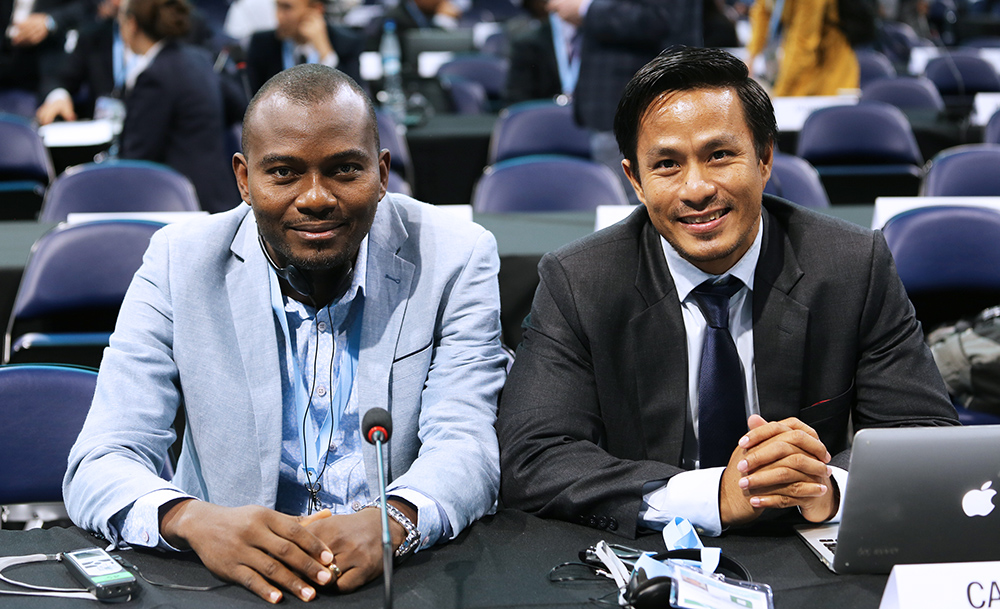
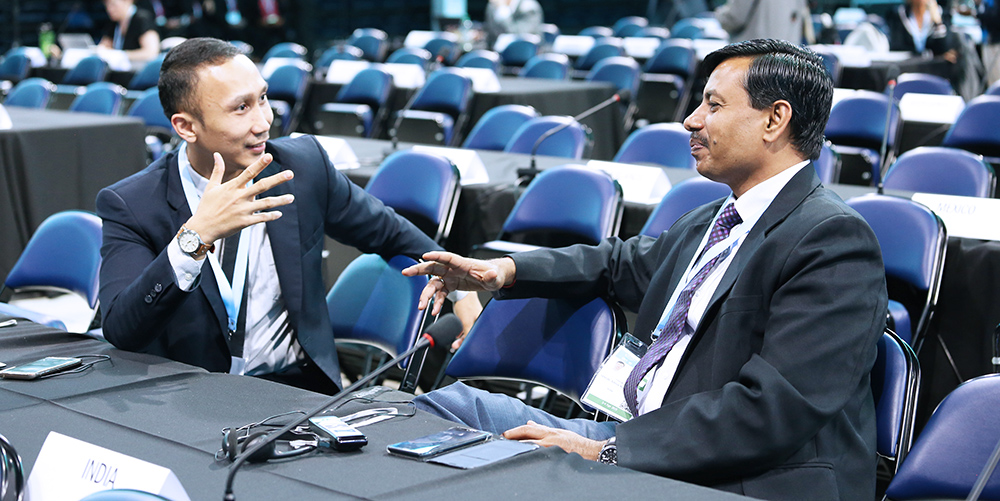
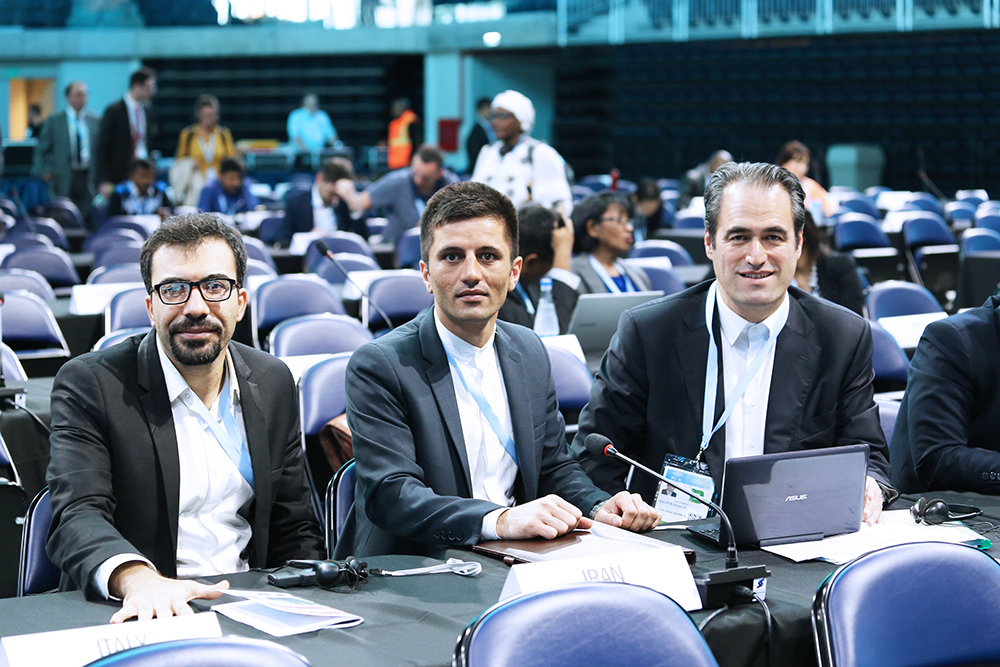
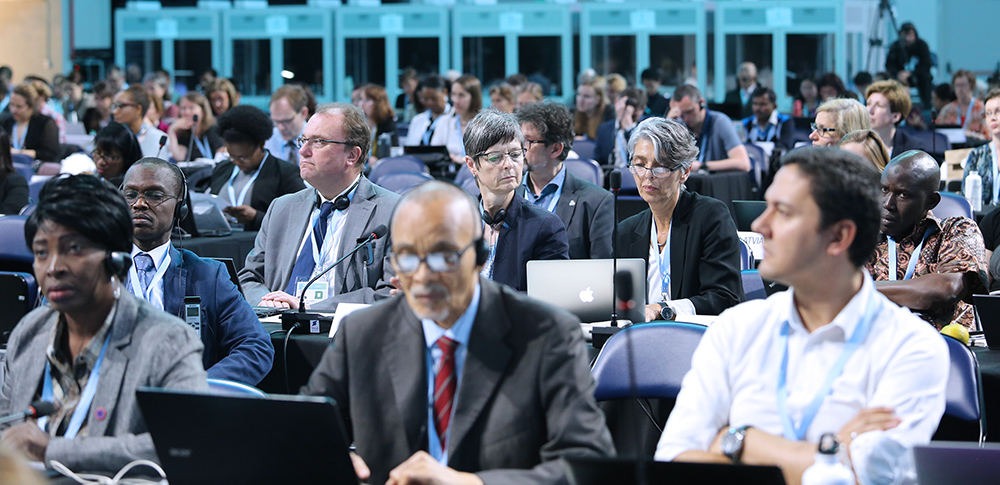
Closing Plenary
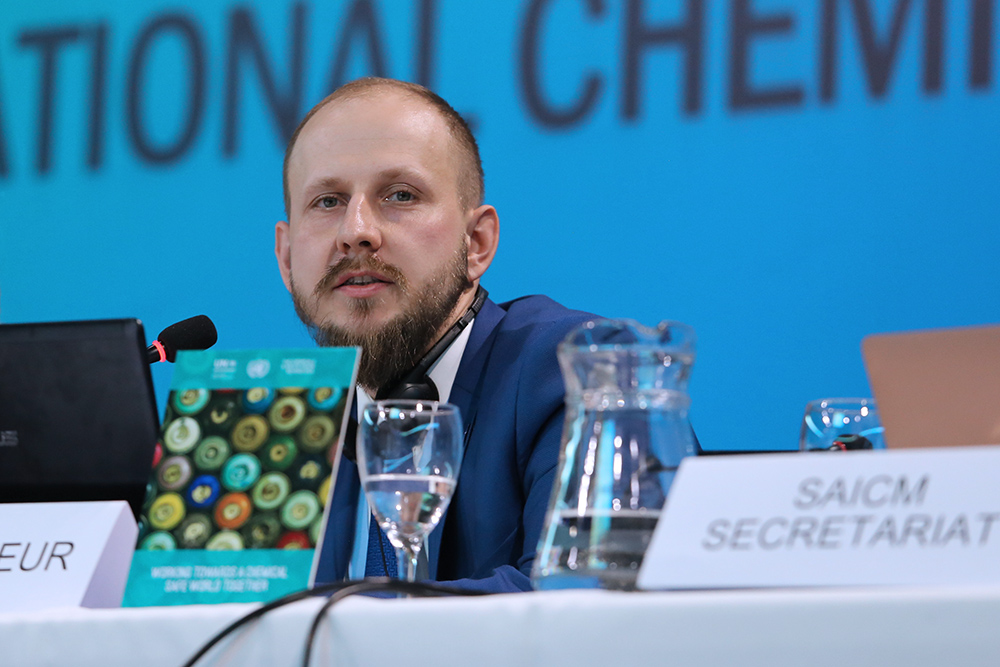
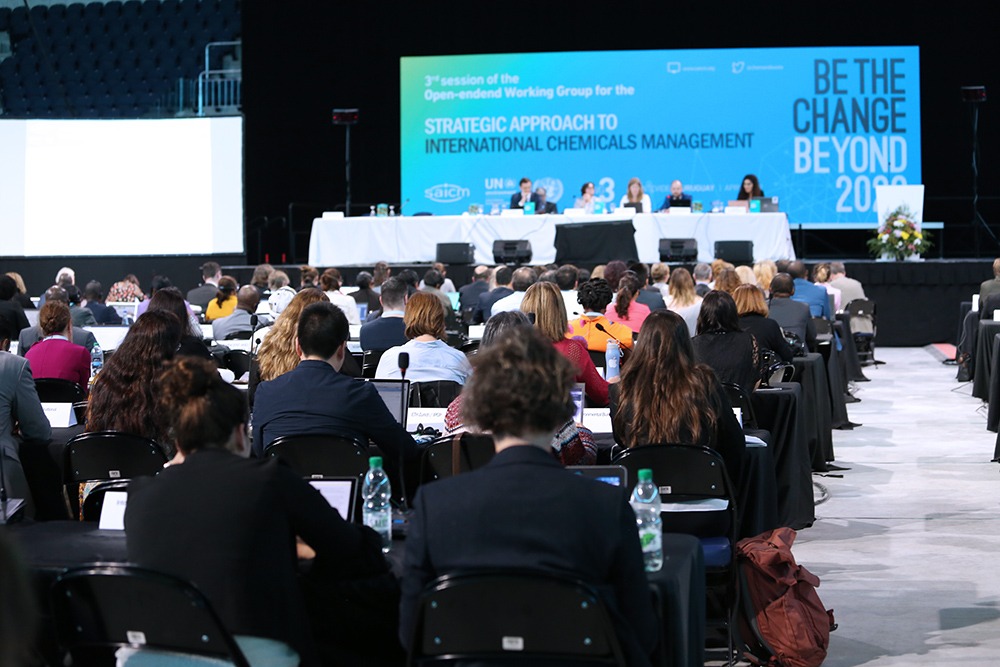
Around the Venue
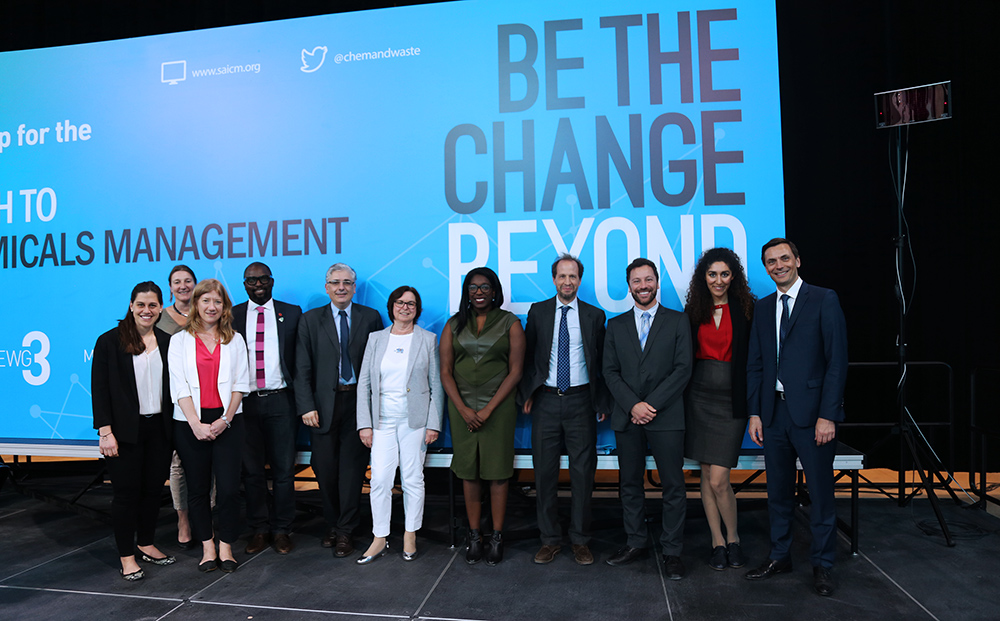
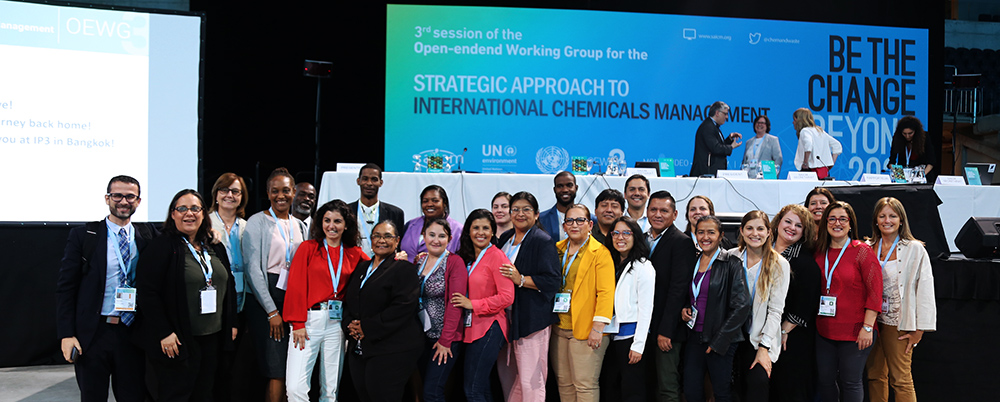
Highlights for Wednesday, 3 April 2019
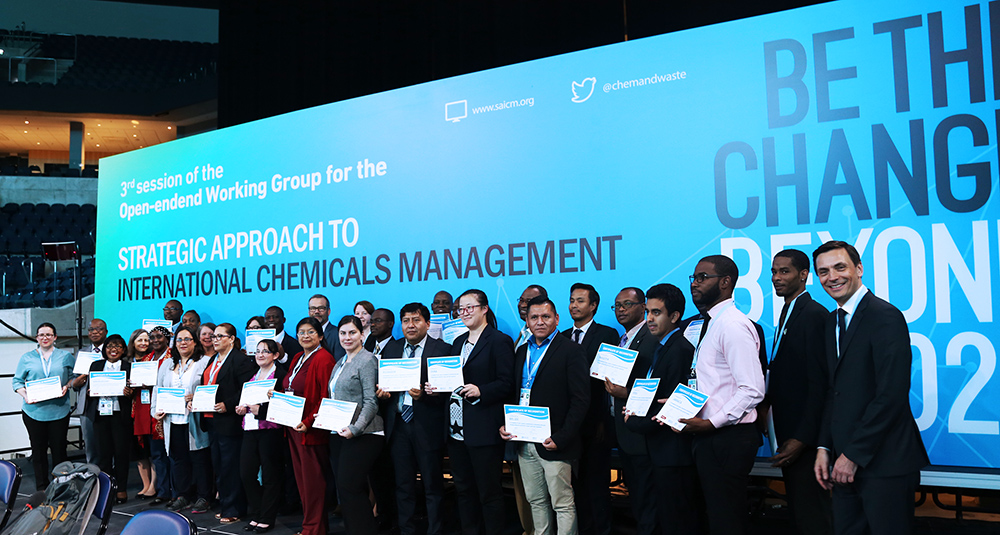
The Third Meeting of the Open-ended Working Group (OEWG3) of the International Conference on Chemicals Management (ICCM) entered its second day of work at the Antel Arena in Montevideo, Uruguay, on Wednesday, 3 April 2019. Plenary was held throughout the day, addressing:
- progress reports on achieving the 2020 goal of the sound management of chemicals;
- updates concerning SAICM's emerging policy issues (EPIs) and other issues of concern, which include: lead in paint; chemicals in products; hazardous substances within the life cycle of electrical and electronic products; nanotechnologies and manufactured nanomaterials; endocrine-disrupting chemicals; environmentally persistent pharmaceutical pollutants; perfluorinated chemicals; and highly hazardous pesticides;
- the implementation of the strategy to engage the health sector;
- issues regarding the financing of the Strategic Approach; and
- planned activities and draft budget of the SAICM Secretariat for the period 2019-2020.
Meeting in parallel were a Contact Group and an informal "Friends of the President" Group. The Contact Group is considering the paper by the Co-Chairs of the Intersessional Process on SAICM beyond 2020, as well as views expressed during plenary, to develop recommendations towards the fifth ICCM (ICCM5) scheduled for 2020. The President's Group is holding informal, closed discussions on the need for an enabling framework beyond 2020, and identifying gaps not filled by SAICM. Both groups are to report on their work to plenary on Thursday.
Highlights of the day included:
- the indication by many that the Secretariat should not spend resources on a traditional progress report for the 2017-2019 period to present to ICCM5, but instead suggest to the third Intersessional Process meeting later this year options for alternative ways of reporting progress;
- the presentation of an EU discussion paper on the sound management of chemicals and waste beyond 2020, providing some concrete recommendations that build on the Co-Chairs' Paper;
- the submission of a discussion paper by the Latin American and Caribbean Group (GRULAC), supported by the African Group and many individual governments, on financial considerations, which includes a proposal to create an International Fund to implement the Sound Management of Chemicals and Waste;
- praise for the World Health Organization's Chemicals Road Map and Global Chemicals and Health Network, with many calling for other organizations in the Inter-Organization Programme for the Sound Management of Chemicals (IOMC) to follow WHO's example in their sectors.
+ Visit the web coverage for Friday, 4 April 2019
Plenary
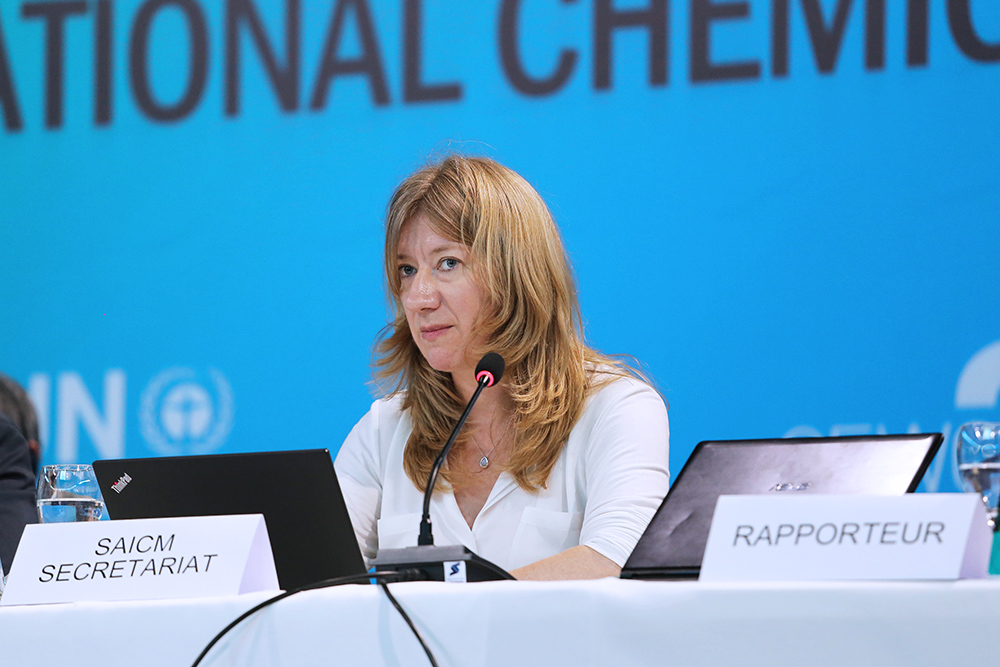
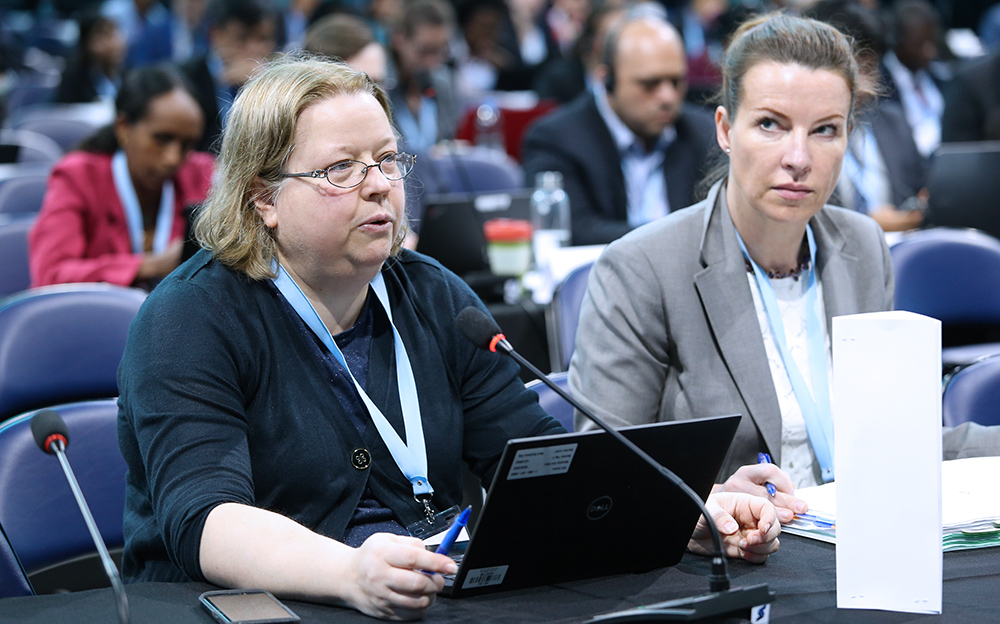
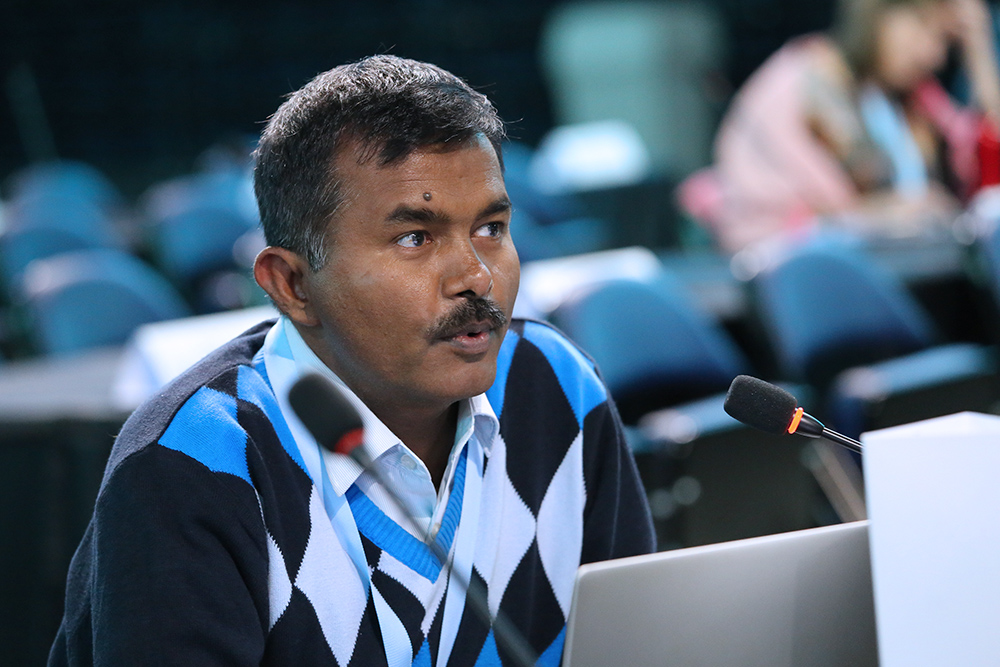

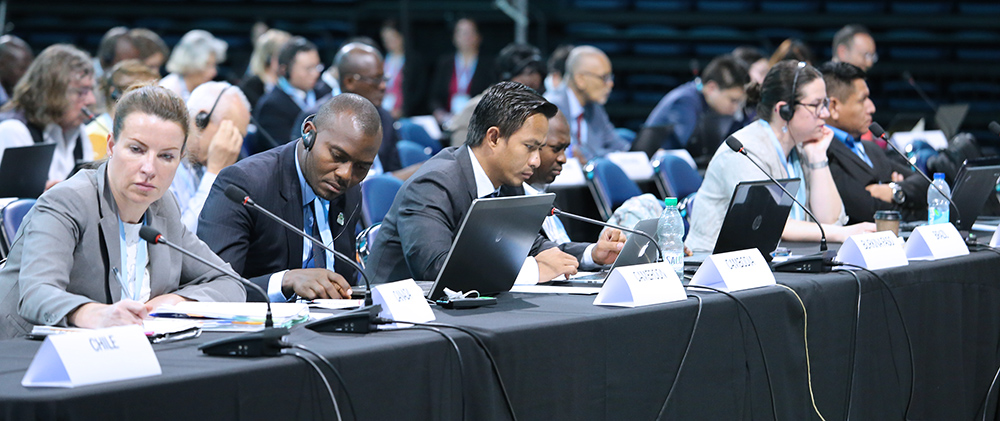
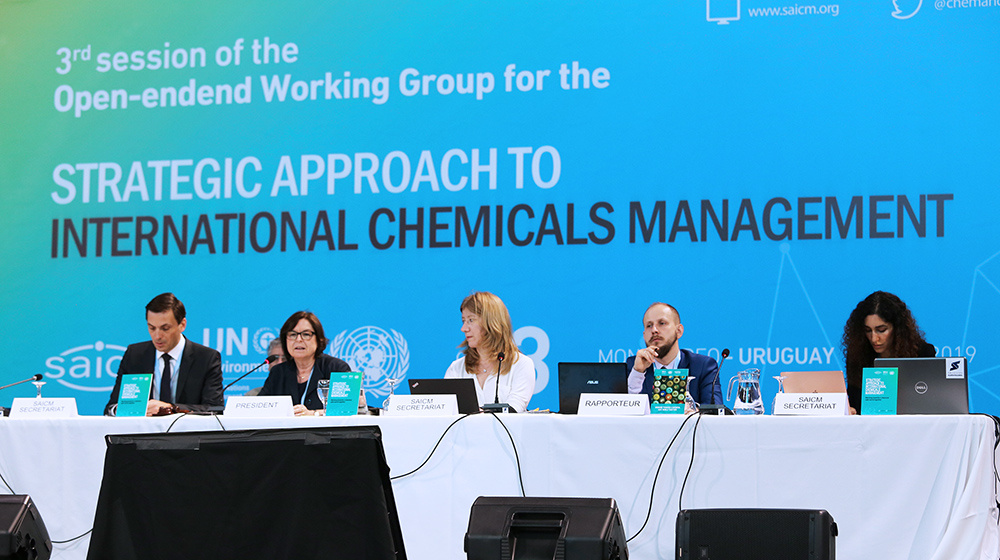
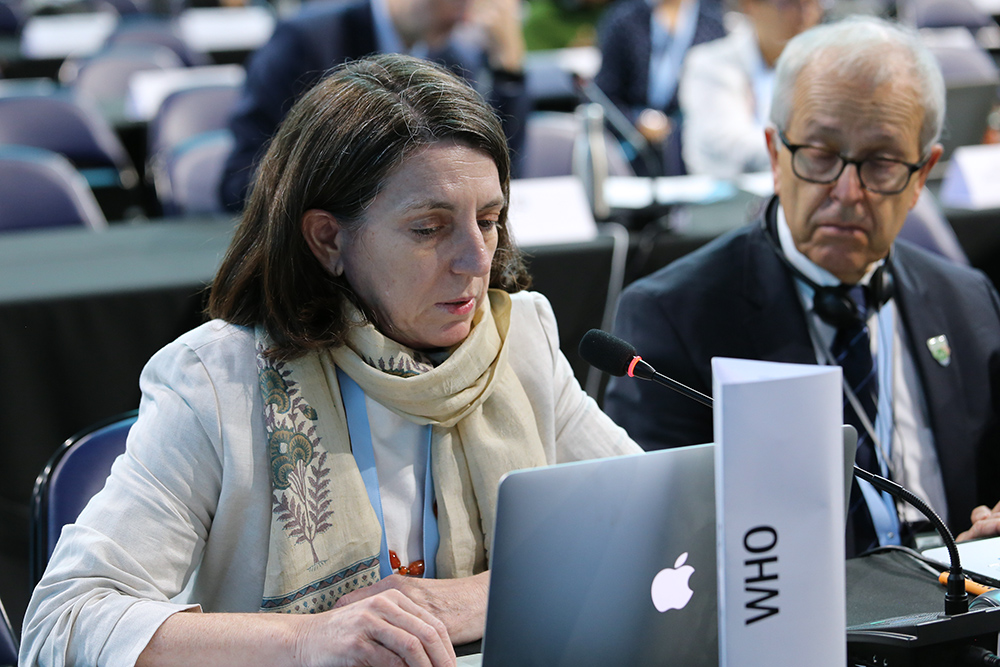
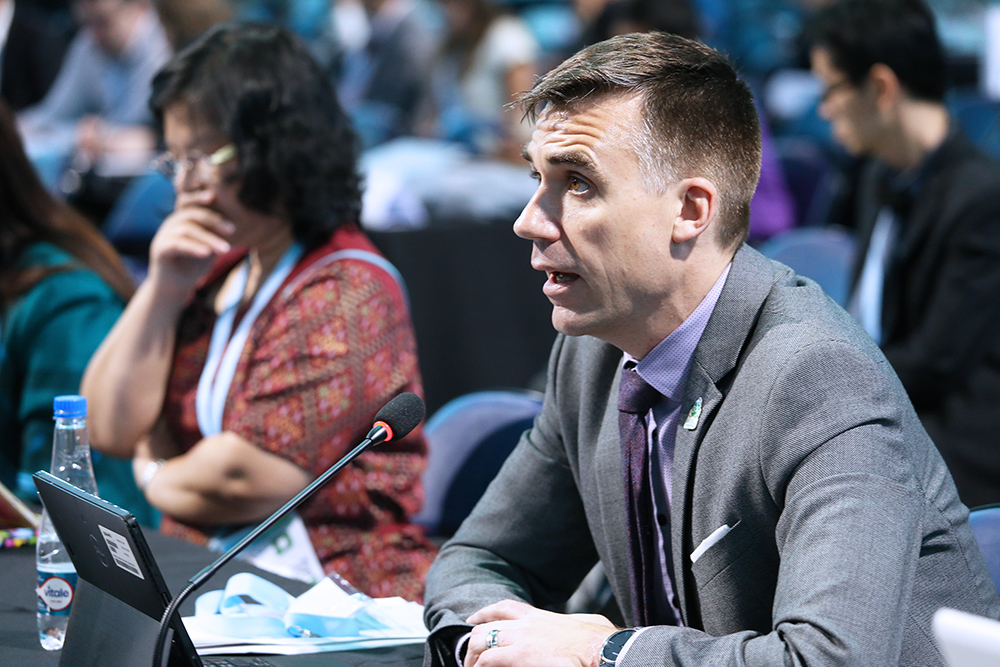
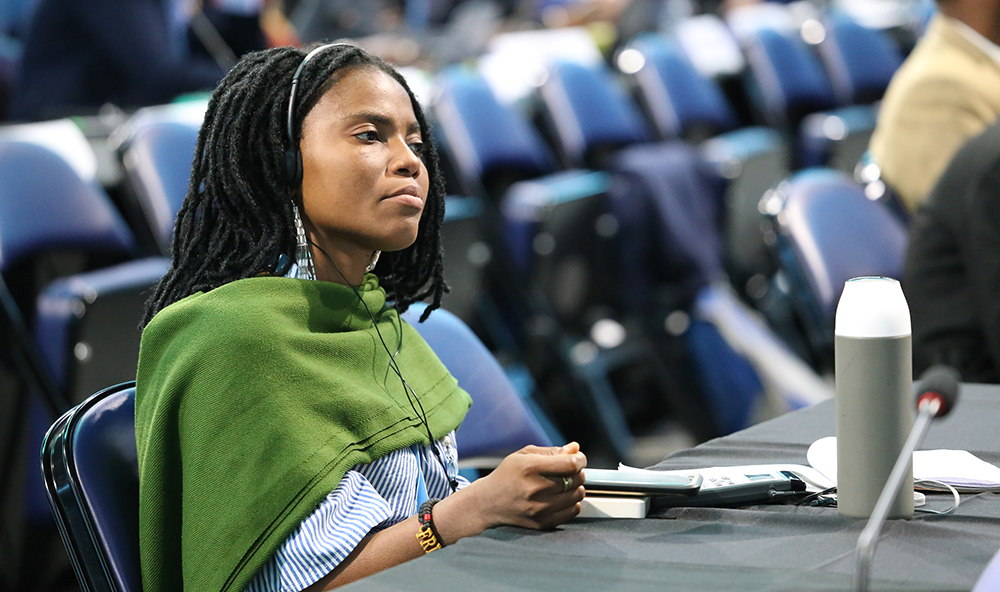
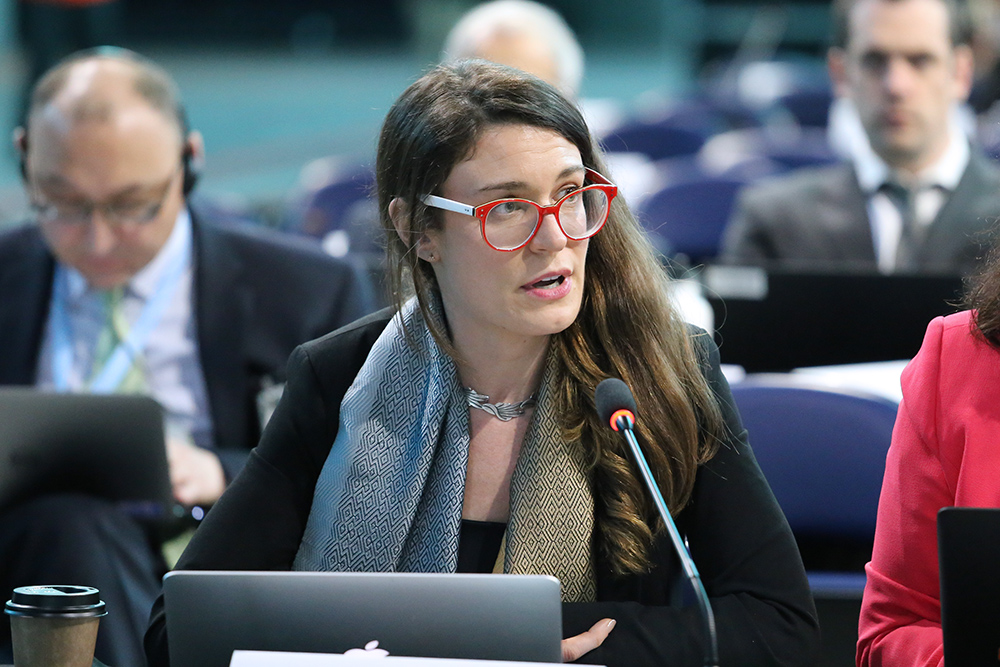
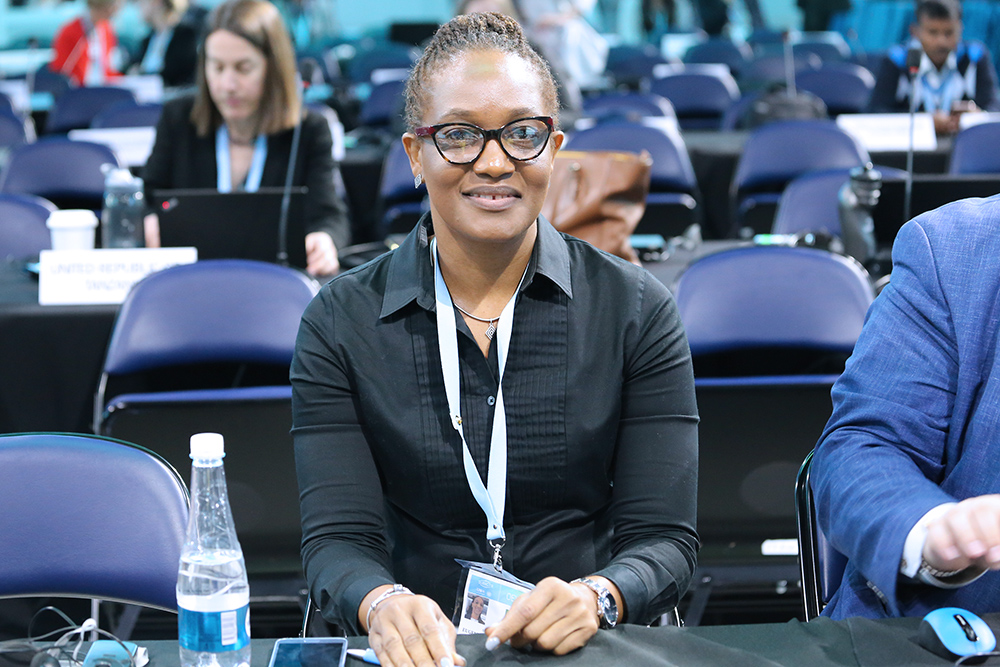
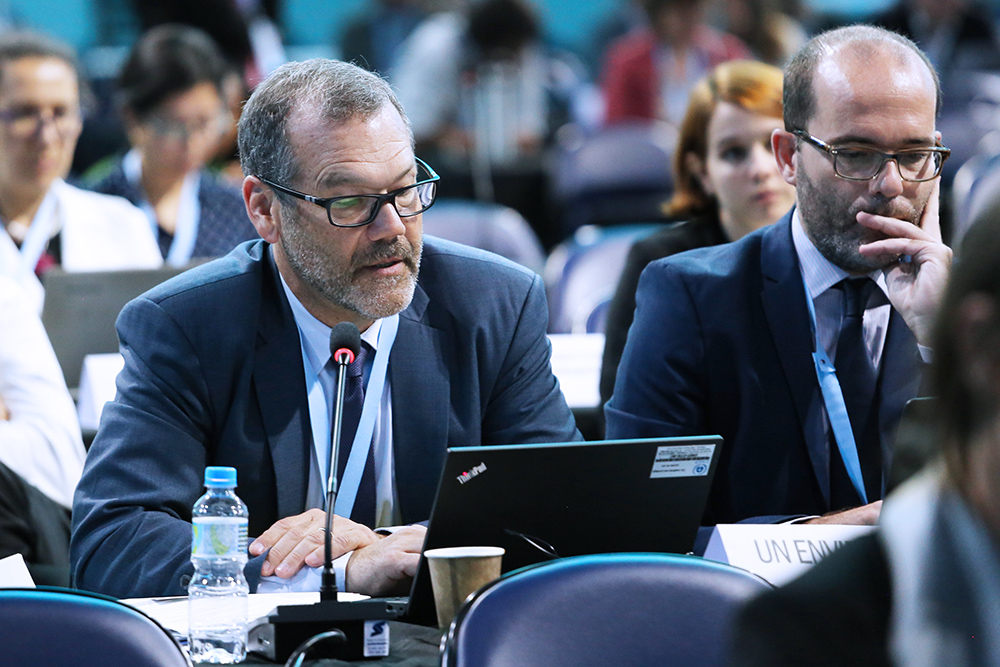
Highlights for Tuesday, 2 April 2019
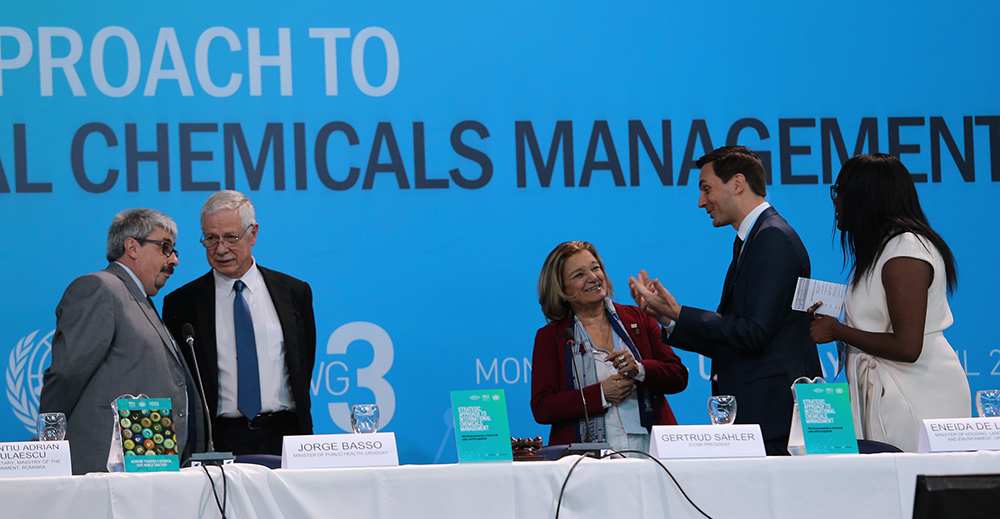
The Third Meeting of the Open-ended Working Group (OEWG3) of the International Conference on Chemicals Management (ICCM) opened at the Antel Arena in Montevideo, Uruguay, on Tuesday, 2 April 2019. Delegates heard high-level addresses from Uruguay, Romania on behalf of European Union, and UN Environment Programme (UNEP), followed by opening statements by regional groupings, government delegates and other stakeholders.
Most of the day was focused on the Strategic Approach and the sound management of chemicals and waste beyond 2020, starting with a brief recorded presentation by consultant Robert Nurick summarizing key points from the independent evaluation of SAICM for the period 2006-2015. Since the full evaluation will not be available until the end of April, the OEWG decided to defer detailed discussion until the third intersessional process (IP) meeting slated for October 2019.
The OEWG then heard a presentation by IP Co-Chair David Morin on the paper on beyond 2020 prepared by the IP Co-Chairs,with an emphasis on areas of agreement involving possible principles, objectives, and targets for a SAICM 2.0 and/or post-2020 complementary framework, but also noting some disagreement about scope.
The OEWG agreed to create a contact group to meet on Tuesday evening and Wednesday to discuss possible recommendations to ICCM5 scheduled for 2020, and a Friends of the President group to discuss possible elements of a post-2020 framework. Noting the departure of IP Co-Chair Letícia Reis de Carvalho (Brazil), the OEWG appointed Judith Torres (Uruguay) as the new IP Co-Chair.
In the late afternoon the Secretariat presented its progress report on SAICM for the 2014-2016 period as well as its analysis of 20 indicators of progress toward the 2020 goal of sound management of chemicals and waste. Then some members of the Inter-Organization Programme for the Sound Management of Chemicals (IOMC) presented updates on recent activities in support of SAICM and its objectives.
+ Visit the web coverage for Tuesday, 2 April 2019
Opening Session
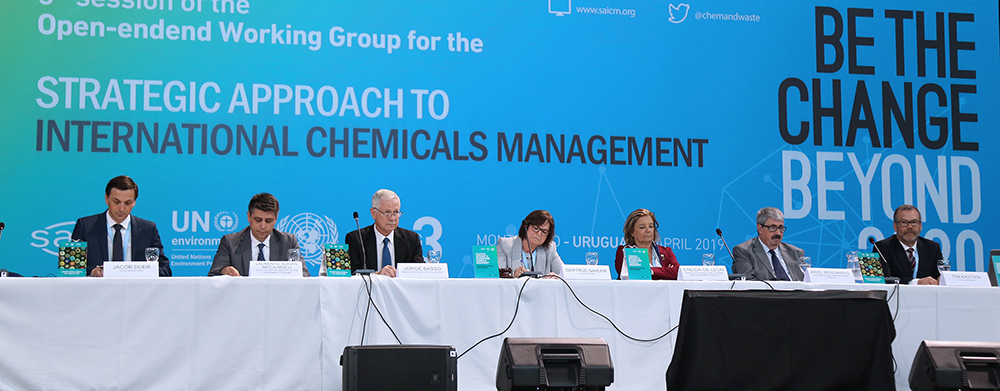
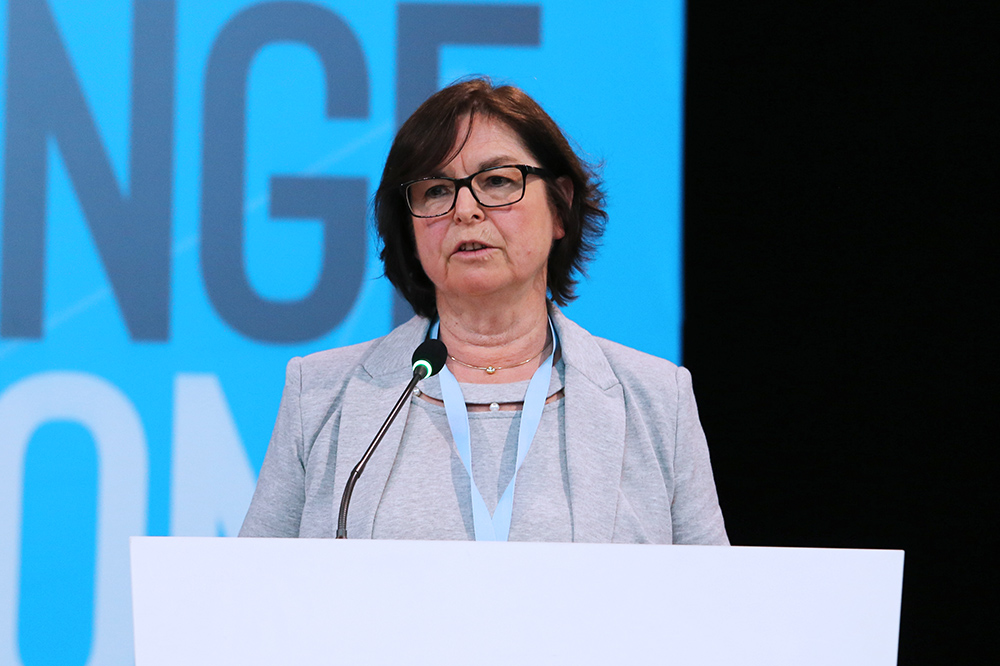
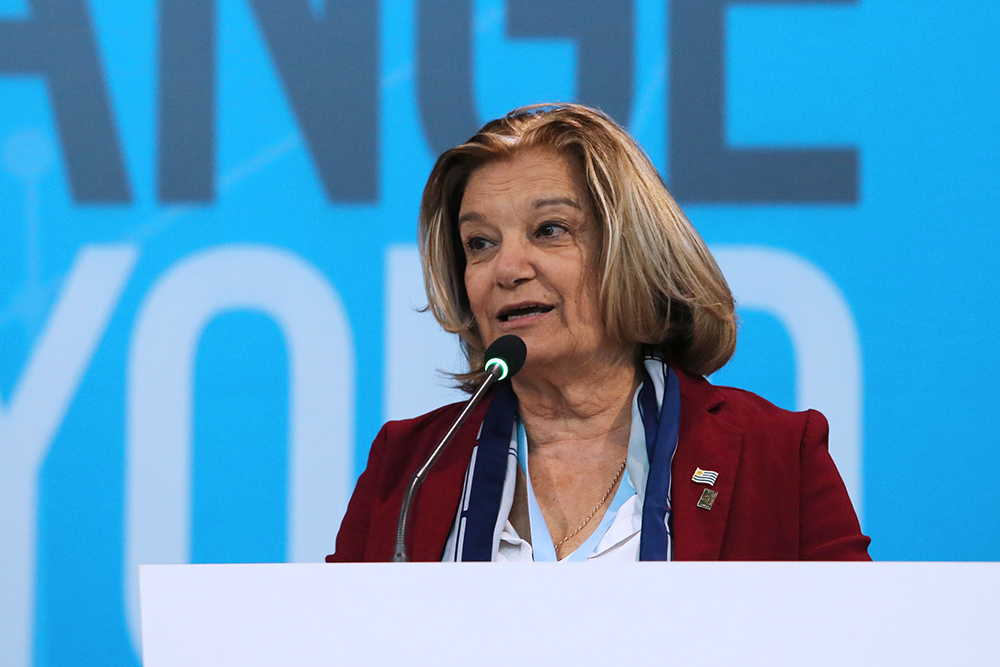
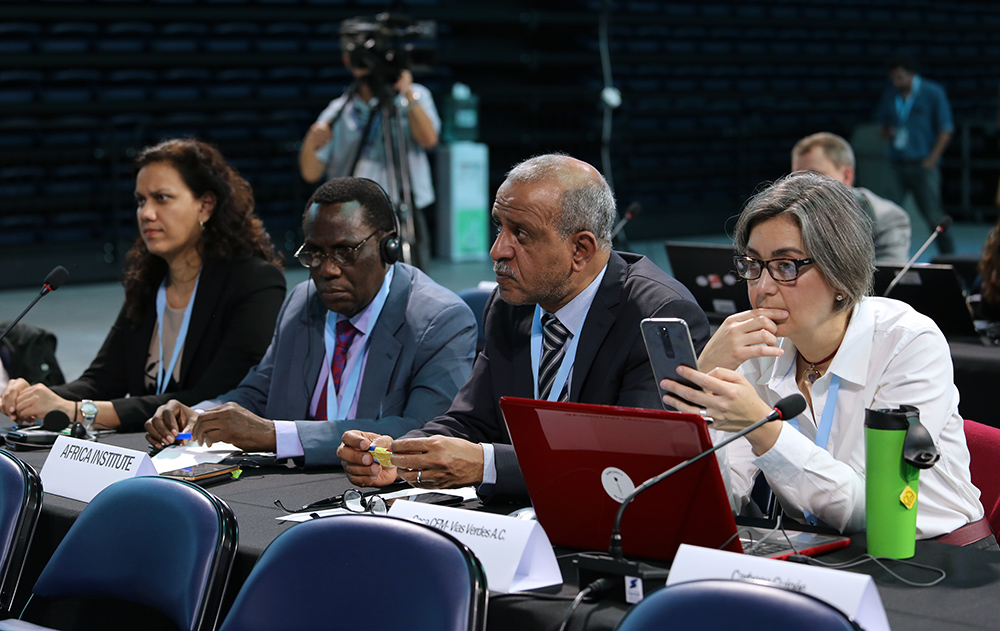
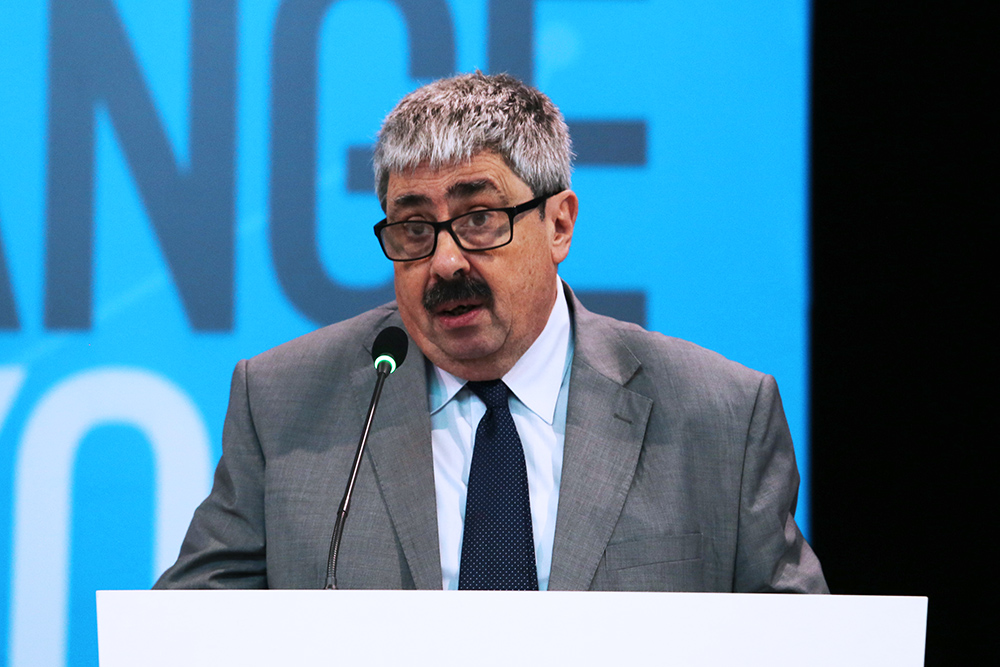
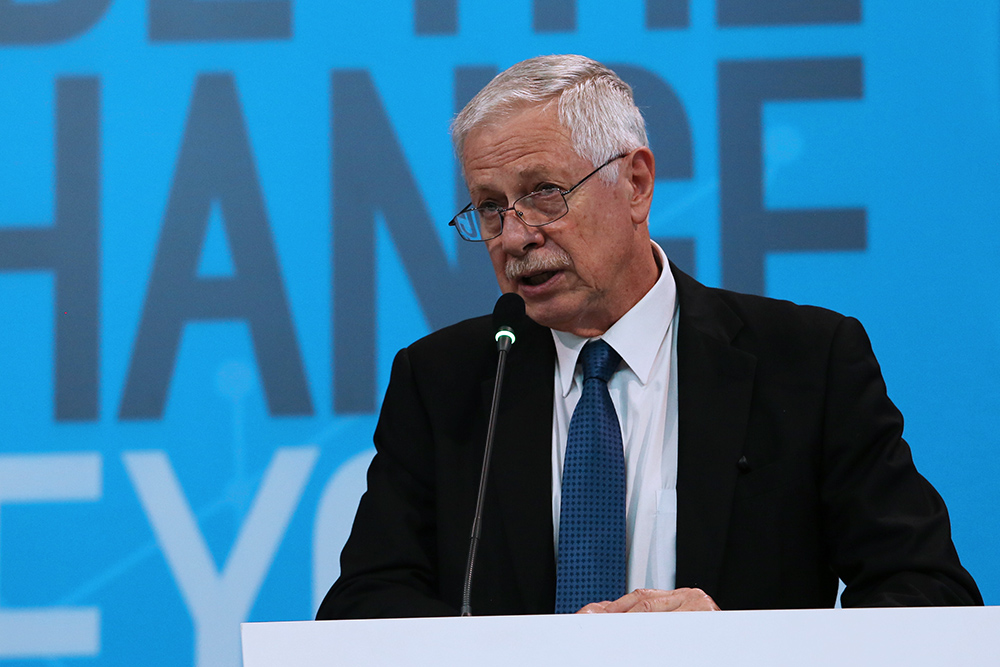

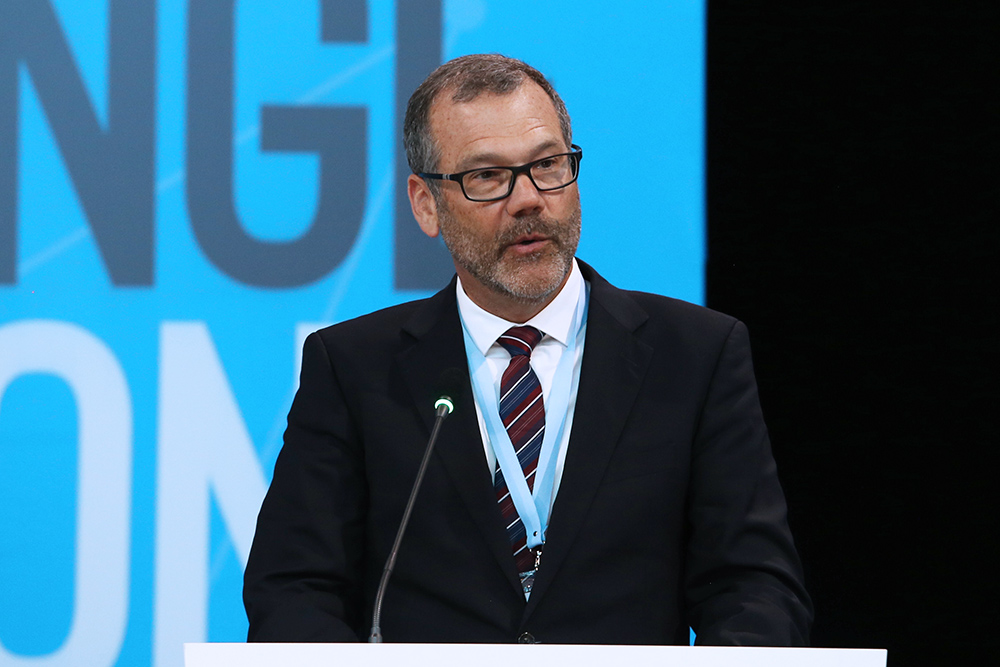
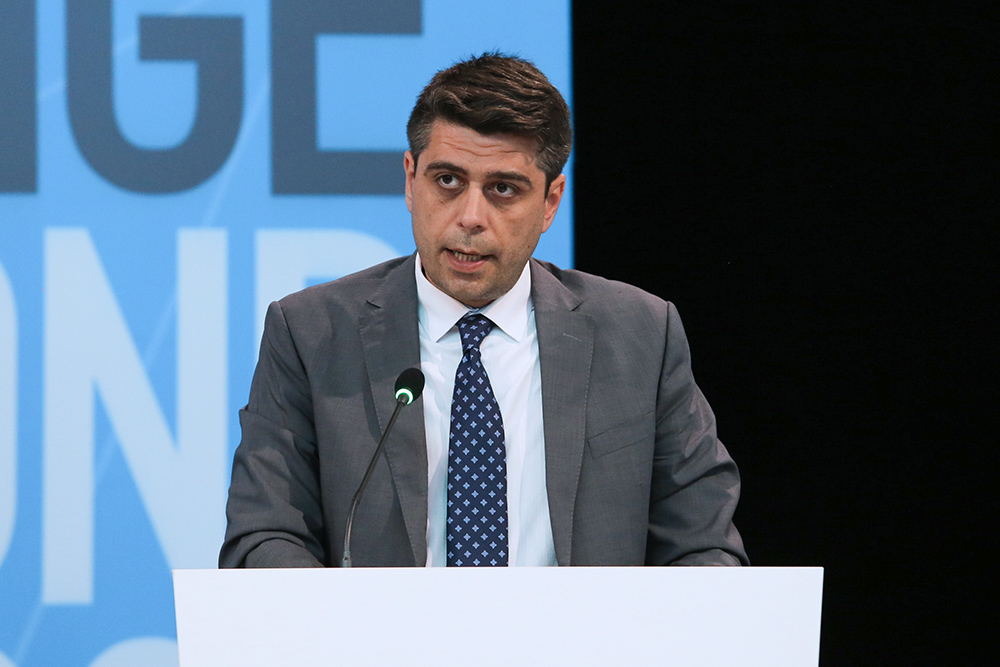
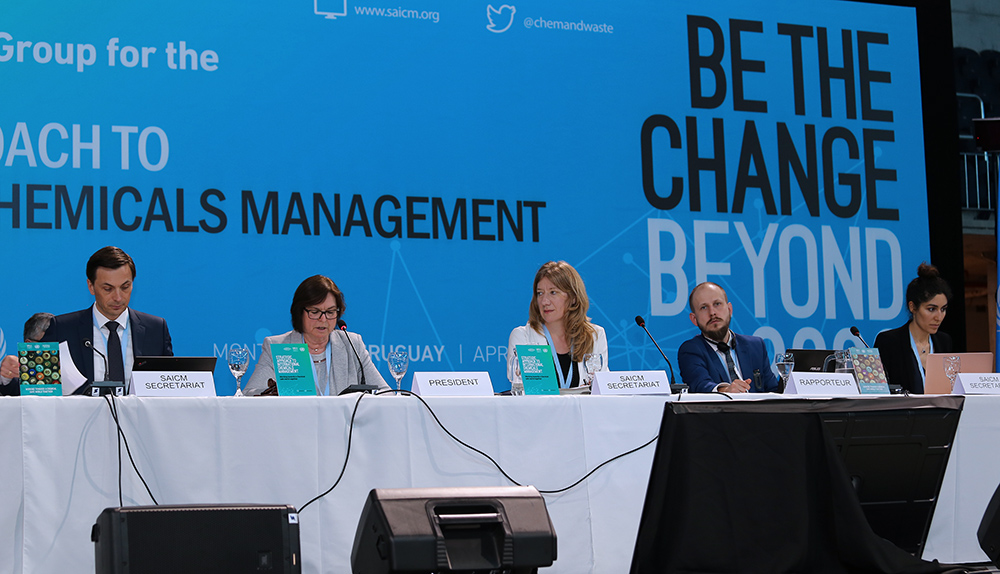
Highlights for Monday, 1 April 2019
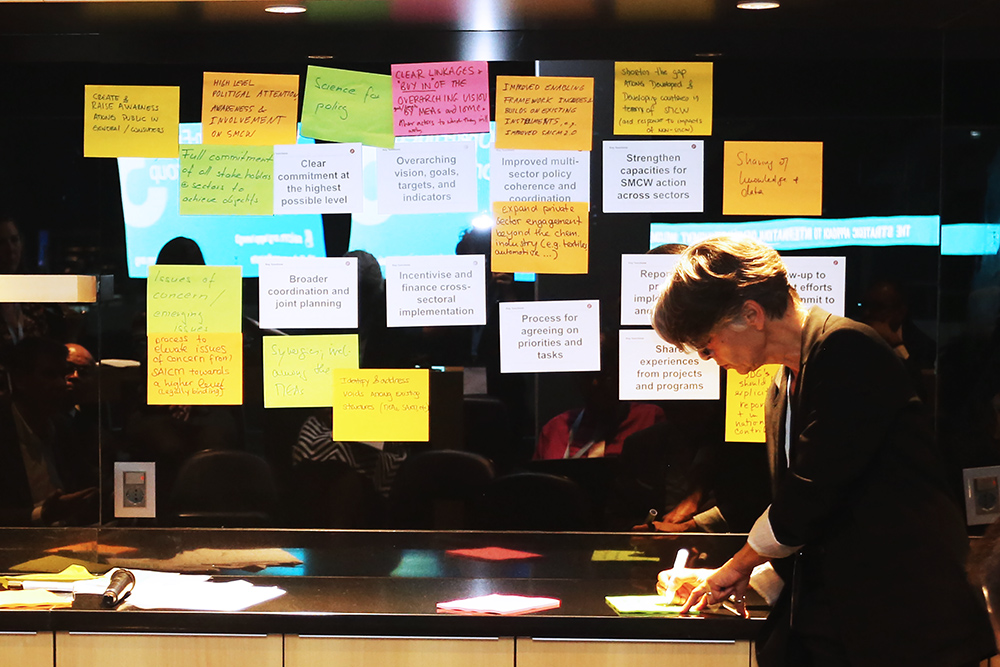
Delegates to the third Open-ended Working Group (OEWG3) of the International Conference on Chemicals Management (ICCM) gathered at the Antel Arena in Montevideo, Uruguay, on Monday, 1 April 2019, for a pre-session set of "technical briefings." One briefing featured a "deep dive" into the second edition of the UN Environment Programme's (UNEP) Global Chemicals Outlook (CGO II), hosted by UNEP. The other featured a dialogue hosted by the Government of Germany on an improved enabling framework on chemicals and waste, with a view to helping inform discussions planned during OEWG3 on a post-2020 platform.
The dialogue on an improved enabling framework heard presentations on lessons learned from the global biodiversity governance process, including the implementation of the Aichi Targets and the negotiations for a post-2020 framework, and on the findings of the report commissioned by the German Environment Agency from Adelphi and Summit Outcomes on “Global Governance on Chemicals and Waste.” The meeting then broke into four smaller groups to brainstorm on:
- The division of labor between the successor to the Strategic Approach to International Chemicals Management (SAICM) and the encompassing governance arrangement for any new chemicals and waste platform for post-2020 work;
- Routes and fora to facilitate accountability in chemicals and waste work beyond 2020;
- Goals and targets involving chemicals and waste beyond 2020; and
- Process until ICCM5 in 2020 and beyond.
The GCO II discussion focused on six distinct sessions which followed the structure of the GCO II.
Delegates reflected on, inter alia:
- The need for capacity building in the technical areas of chemicals management, especially for developing countries;
- Risk assessments and sharing these across countries; and
- How best to strengthen knowledge sharing and outreach on chemicals and wastes.
Among the session’s highlights were:
- The World Health Organization (WHO) estimate that the global burden of disease from selected chemicals was around 1.6 million in 2016, and this is likely an underestimate;
- Celebration by many participants of the multi-stakeholder approach, with emphasis on including additional sectors going forward such as labor and education; and
- The call by some for increased incentives for collaboration between industry and government on green chemistry and innovation.
+ Visit the web coverage for Monday, 1 April 2019
A Deep Dive Into the Second Edition of the Global Chemicals Outlook II
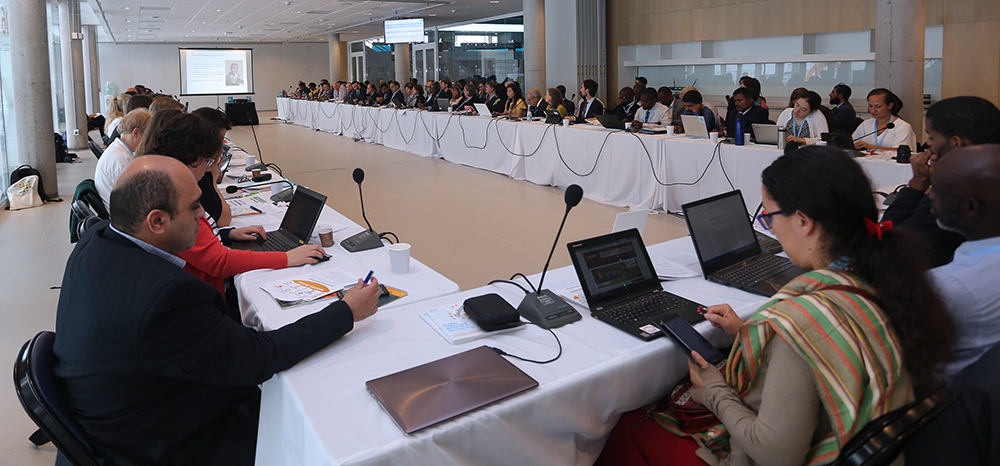 A view of the room
A view of the room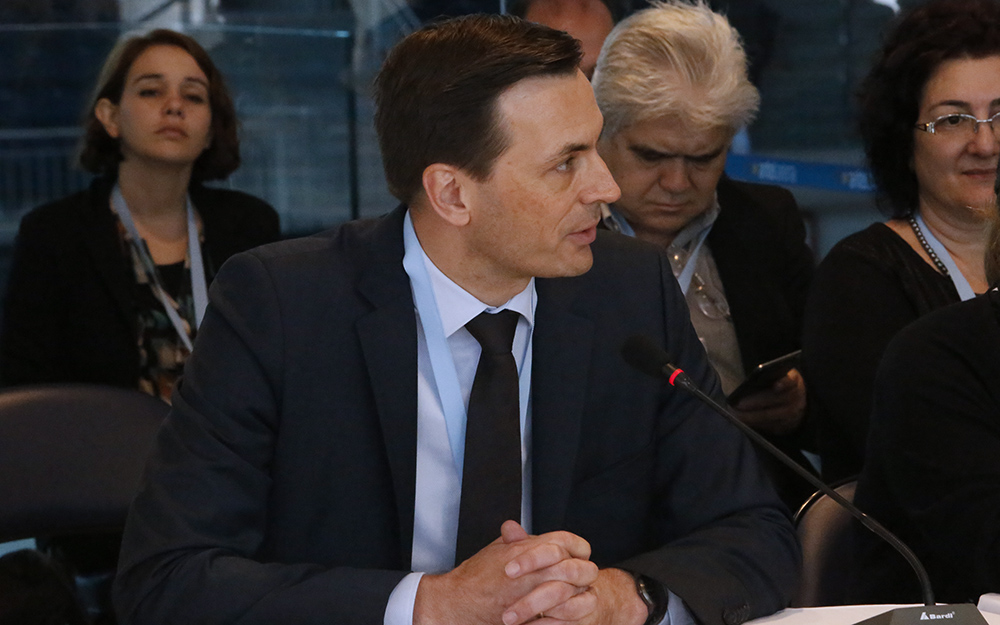 Jacob Duer, Head of SAICM Secretariat
Jacob Duer, Head of SAICM Secretariat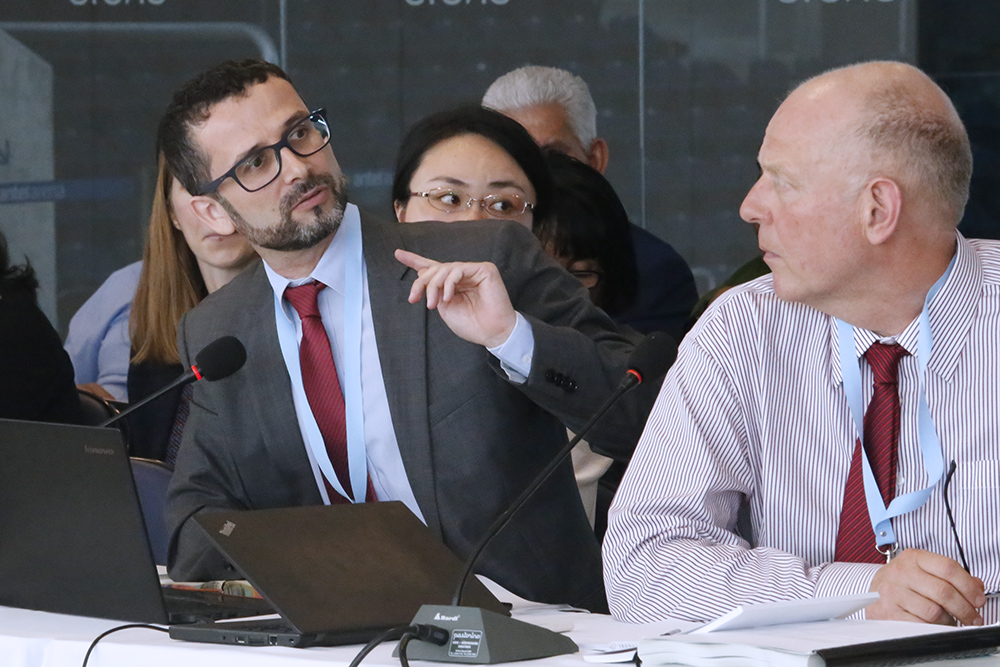 Jordi Pon, UNEP
Jordi Pon, UNEP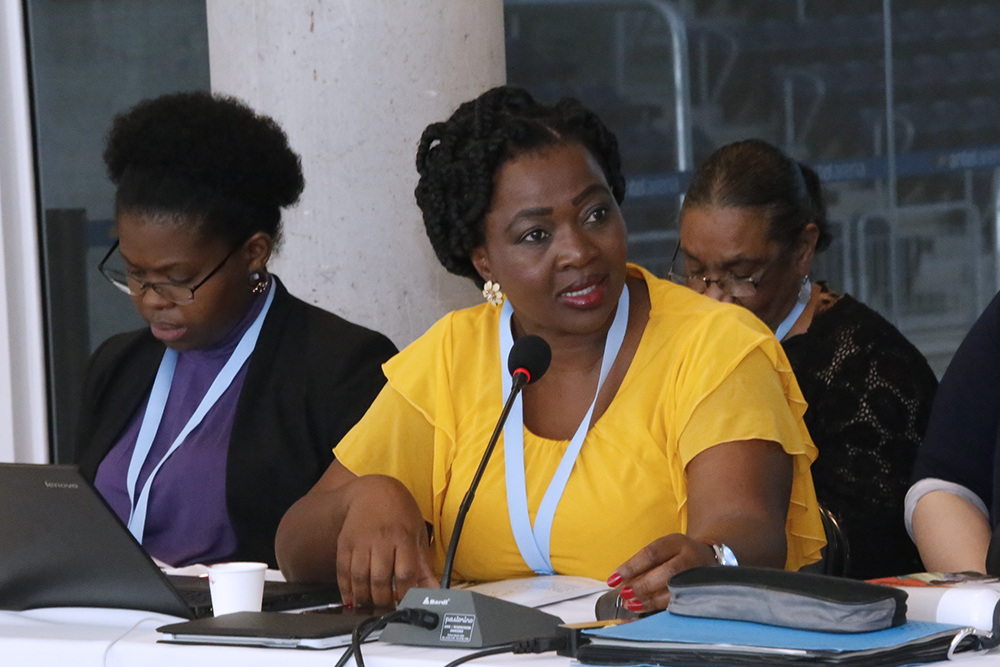 Noluzuko Gwayi, South Africa
Noluzuko Gwayi, South Africa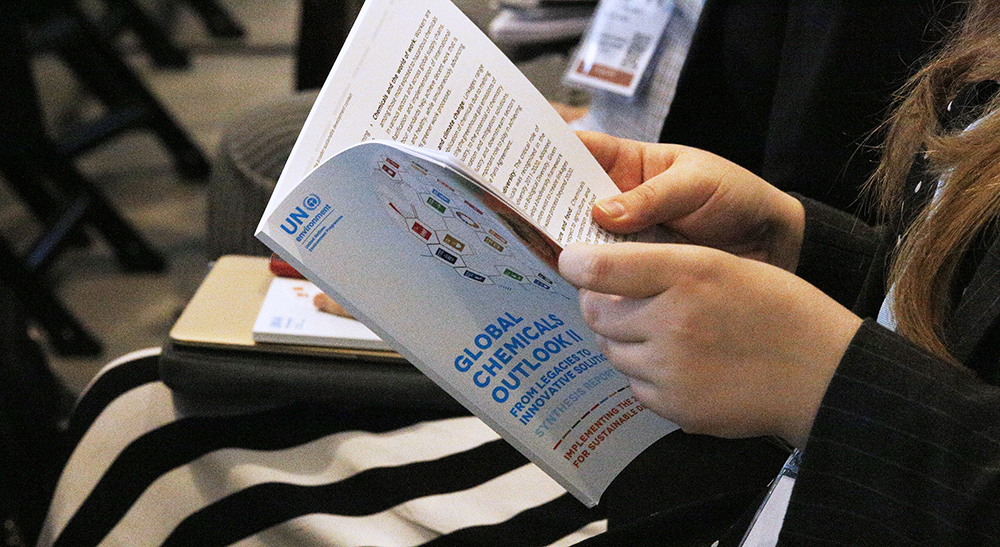
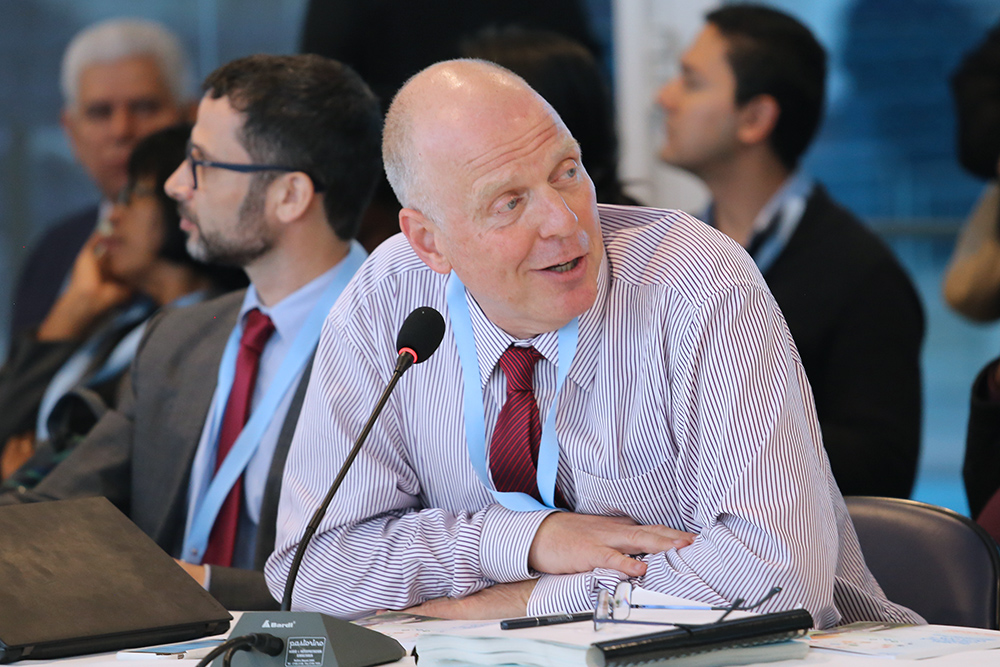 Achim Halpaap, UNEP
Achim Halpaap, UNEP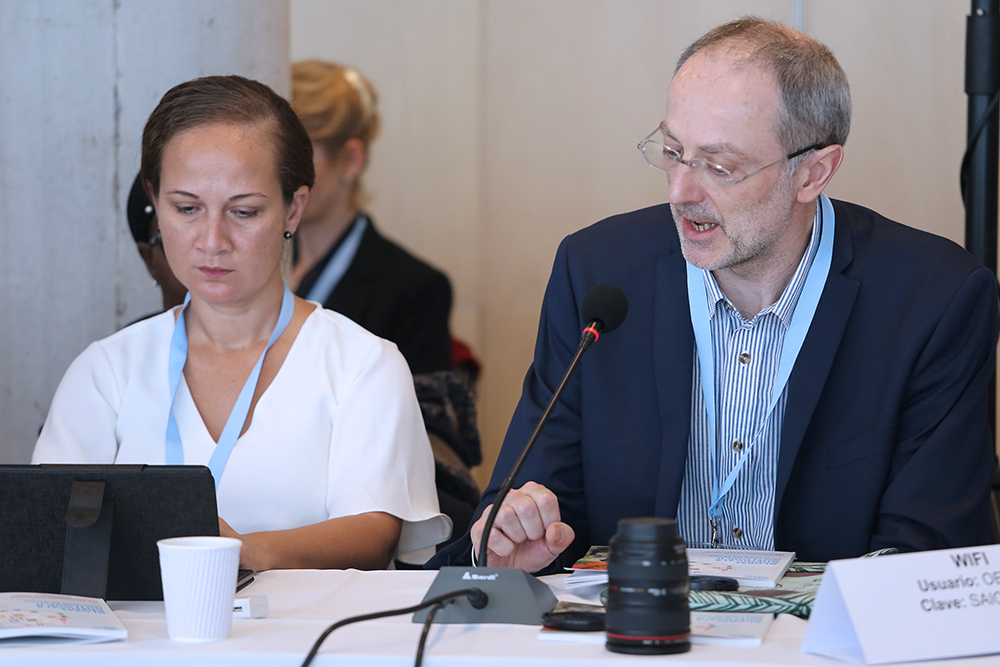 Lagipoiva Cherelle Jackson, IISD Reporting Services, and Robert Diderich, Organisation for Economic Co-operation and Development (OECD)
Lagipoiva Cherelle Jackson, IISD Reporting Services, and Robert Diderich, Organisation for Economic Co-operation and Development (OECD)
DOWNLOAD ENB REPORT
SAICM Resources
- OEWG3 Website and Documents
- OEWG3 Annotated Provisional Agenda
- Paper by the Co-Chairs of the SAICM Intersessional Process and the Sound Management of Chemicals and Waste Beyond 2020
IISD ENB/ENB+ Meeting Coverage
- 2nd Meeting of the Intersessional Process for Considering SAICM and the Sound Management of Chemicals and Waste Beyond 2020, 13-15 March 2018, Stockholm, Sweden
- 2017 Meetings of the Conferences of the Parties to the Basel, Rotterdam and Stockholm Conventions, 25 April – 5 May 2017, Geneva, Switzerland
- 1st Meeting of the Intersessional Process for Considering SAICM and the Sound Management of Chemicals and Waste Beyond 2020, 7-9 February 2017, Brasilia, Brazil
- 4th Session of the International Conference on Chemicals Management (ICCM4), 28 September - 2 October 2015, Geneva, Switzerland
- OEWG2 of the International Conference on Chemicals Management, 15-17 December 2014, Geneva, Switzerland
- ICCM3, 17-21 September 2012, Nairobi, Kenya
- ICCM2, 11-15 May 2009, Geneva, Switzerland
- ICCM1, 4-6 February 2006, Dubai, United Arab Emirates (UAE)
- IISD Reporting Services Archive of Meetings on Chemicals Management
IISD Resources
- CHEMICALS-L - A News and Announcement List on Chemicals and Wastes News and Policy Developments
- SDG - A Mailing List for News on Sustainable Development Policy
- SDG Update Newsletter - A compilation of news, commentary and upcoming events published on the SDG Knowledge Hub
- SDG Knowledge Hub - An Online Resource Center for News and Commentary Regarding the Implementation of the United Nations’ 2030 Agenda for Sustainable Development, including all 17 Sustainable Development Goals (SDGs)
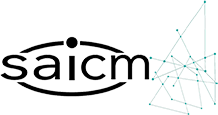 Specific funding for IISD Reporting Services coverage of OEWG3 has been provided by the SAICM Secretariat
Specific funding for IISD Reporting Services coverage of OEWG3 has been provided by the SAICM Secretariat